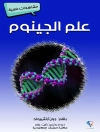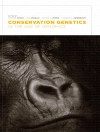The combined power of genetic analysis and recombinant DNA
technology to analyse entire genomes has moved biomedical research
into a new and revolutionary phase. The complete sequencing and
mapping of the human genome, as well as the genomes of other model
organisms, will be the basis for our future understanding of human
disease, and will allow us to answer fundamental questions about
development and evolution. T
The new ICRF Handbook of Genome Analysis is the essential
guide to the enormous range of techniques available to the
researcher for both the genetic and physical mapping of the genome,
as well as the sequencing and analysis of DNA. It is both a
protocol manual and a comprehensive information resource. Written
by international experts, each chapter presents a state-of-the-art
review of a methodology. Methods are fully described and evaluated;
their advantages and disadvantages discussed; and their suitability
for different investigations considered. Step-by-step protocols,
including computer analyses, are given for 123 essential
experimental procedures. ‘Troubleshooting’ sections discuss
possible reasons for failure and offer remedies. The primary focus
is on human genetics and the benefits of an understanding of the
genome for the diagnosis and treatment of human disease. The book
also considers the current state of progress in the analysis of
genomes of many model organisms, including plants. A major part of
the work provides detail on Internet resources as well as basic
data on human and other genomes, including mapped disease genes and
mouse knockouts.
* Covers not only the human genome in relation to cancers and
other human diseases, but also the genomes of all important model
organisms
* Contains 123 easy-to-follow protocols for essential
experimental procedures
* Reviews a vast range of other information resources, including
journals and the Internet * provides an invaluable listing of
suppliers of laboratory materials
* Has been written by international experts from their own
practical experience
* Is mandated by the Imperial Cancer Research Fund – a leader in
research in this field
* Has a sturdy spiral binding within a hardback case for ease of
use in the lab
สารบัญ
Introduction.
Family Studies.
Complex Studies.
Constructing And Using Genetic Maps.
Automated Map Construction.
Polymorphic Markers.
DNA Typing.
Part II: Physical Mapping I: Cytogenetic Analysis.
Introduction.
Conventional Cytogenetics.
Solid Tumor Cytogenetics.
In Situ Hybridisation.
Chromosome Painting.
Chromosome Microdissection.
Chromosome Sorting And Analysis.
Digital Microscopy.
Part III: Physical Mapping II: Long-Range Mapping And Gene
Isolation.
Introduction.
Somatic Cell Hybrid Approaches To Genome Mapping.
Long-Range Physical Mapping.
Integrating Genetic And Physical Maps.
Strategies For Rapid Isolation Of Genes From Genomic DNA:Cdna
Techniques Screening Cdna Libraries By Transient Expression In
Mammalian Cells.
Part IV: Sequencing And Sequence Analysis.
Introduction.
Sequencing Strategies.
Template Amplification And Purification.
Sequencing Chemistries.
Electrophoresis.
Sequence Labelling And Detection.
Automation.
Mutation Analysis.
Repeat Analysis.
Part V: Other Model Systems.
Introduction.
Mouse Mapping.
Somatic Gene Therapy.
Drosophila Melanogaster.
Caenorhabditis Elegan.
Saccharomyces Cerevisiae.
Escherichia Coli.
Problems In Plant Genome Analysis.
Arabidopsis Thaliana.
Part VI: Internet Resources.
Introduction.
Internet Resources And How To Use Them.
Unix Survival Kit.
Databases And Genome Resource Centers.
Appendices.
Materials, Media And Solutions.
Preparation Of Blood Bottles And Processing Of Blood
Samples.
Commercial Suppliers.
Other Resources.
Useful Addresses And Internet Connections.
Basic Data On Human And Other Genomes.
Catalogue Of Mapped Human Disease Genes.
Mouse Gene Knock-Out Tables.
Chromosome Aberrations Associated With Cancer.
Glossary.
Index.
เกี่ยวกับผู้แต่ง
N. S. Spurr is the editor of ICRF Handbook of Genome Analysis, published by Wiley.
S. Bryant is the editor of ICRF Handbook of Genome Analysis, published by Wiley.
Bryan Young is the editor of ICRF Handbook of Genome Analysis, published by Wiley.












